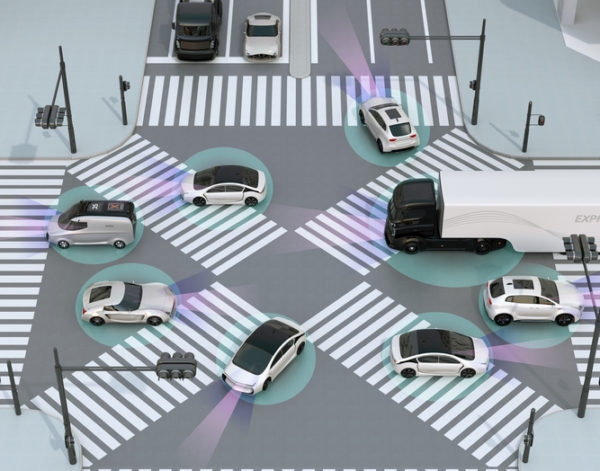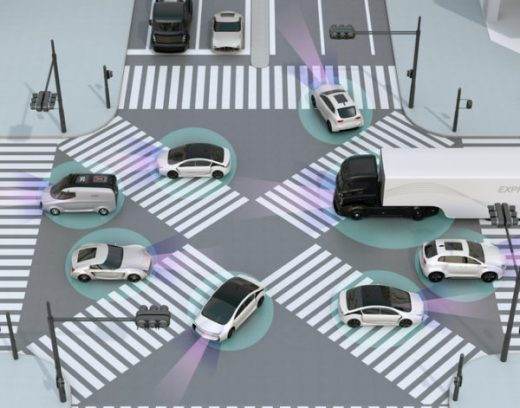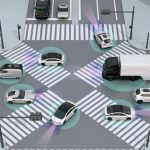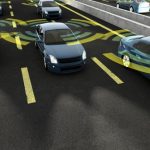Should Uncle Sam be worried about autonomous vehicle job losses right now?
Should Uncle Sam be worried about autonomous vehicle job losses right now?

Highly automated vehicles will positively benefit society in a myriad of ways, but there is also a concern that these vehicles will cause job displacement. We recently sat down with Elliot Katz, chair of McGuireWoods’ Connected and Automated Vehicle practice, to talk about highly automated vehicle deployment and concerns surrounding job displacement, and what the government should be doing now to address this potential issue.
ReadWrite: I have heard that, despite the many benefits that highly automated vehicles will bring to society, many people are concerned about the potential impact these vehicles may have on our workforce. Any thoughts?
Elliot Katz: Highly automated vehicles (HAVs) will benefit society by reducing traffic fatalities, decreasing congestion, reducing air pollution, opening up travel time to productivity and family enjoyment, providing true mobility for all, and creating new jobs. However, you are correct that the introduction of HAVs has raised job displacement concerns, both from labor unions and our government. For example, Transportation Secretary Elaine Chao has said she is “very concerned” about the impact of HAVs on U.S. jobs.
RW: Do you believe these concerns are warranted?
EK: I believe that the transition to driverless vehicles and other technological advances will create new employment opportunities, and that with the right policy and institutional responses from our government, HAV deployment will lead to enhanced levels of employment.
The issue is not that HAV deployment will render individuals whose jobs may be displaced unemployable. Instead, it is that those individuals – without proper occupational training – may lack the skills necessary to successfully transition into the high-quality jobs created by HAV deployment.
RW: Has our government taken any actions to proactively address potential job displacement in our driverless future?
EK: Not directly, no. One thing the government has done – which is highly problematic – is limit the amount or type of HAVs that can be deployed, due to the fear that HAV deployment will cause unemployment. For example, the House included a 10,000-pound weight limit in the Self Drive Act, so that highly automated semi-trucks could not be deployed the way passenger vehicles could be under the bill.
RW: Why is that type of government action highly problematic?
EK: Because we need all types of HAVs deployed to curb traffic accident fatalities, which are on the rise. Last year, an estimated 40,000 traffic accident fatalities occurred in the U.S., and because NHTSA estimates that HAVs could prevent 19 out of every 20 traffic accidents, we cannot afford to limit the amount or type of HAVs deployed on our roads.
By limiting the type or amount of HAVs deployed due to potential unemployment concerns – an issue that can be ameliorated with proper governmental response and action – the government is tempering the life-saving benefits of HAV deployment, while not addressing potential job displacement. According to the Department of Commerce, over 15 million U.S. workers are employed in occupations that could be affected by HAV deployment. That’s why potential job displacement is a critical issue that must be addressed now. By simply limiting HAV deployment in the near term, the government is not addressing the core underlying issue of job displacement that may result from the inexorable and ubiquitous advancement of HAV technology. At some point, humans will no longer drive vehicles, and our government needs to prepare for that time now.
See also: How autonomous vehicles could lead to more jobs in Detroit
RW: What actions do you believe the government should take to proactively deal with this potential issue?
EK: I believe the government should implement occupational training programs to ensure that people have the skills needed to transition to the jobs borne out of HAV deployment.
RW: Do you believe that is possible?
EK: Very much so. In line with his economic agenda, President Trump signed an executive order in June to support the flexibility and growth of workforce development programs and apprenticeships across the country through increased federal funding, new industry-led apprenticeship program guidelines, and a task force responsible for promoting apprenticeship programs. The transition to driverless vehicles will create new employment opportunities, and President Trump’s executive order provides a perfect opportunity to create and implement the training programs needed to ensure that HAV deployment leads to enhanced levels of employment.
RW: Why do you believe that it is important for the government to act now?
EK: President Trump has routinely criticized companies for purportedly shipping jobs overseas, and if nothing is done to retrain U.S. workers, it may only be a matter of time before he turns his attention to potential job displacement in a driverless future. HAVs will have such a net positive impact on society that we cannot risk having government inaction jeopardize the deployment of these vehicles.
Just a few weeks ago, India’s transport and highways minister stated that driverless cars would not be allowed in India, precisely because he believes the technology will take away jobs and lead to unemployment. I strongly believe that is the wrong approach for all the reasons I stated earlier – especially given that, tragically, there were nearly 150,000 traffic accident fatalities in India in 2015 – and I do not want to see the U.S. similarly limit the deployment of these life-saving vehicles.
Elliot Katz is the chair of McGuireWoods’ Connected and Automated Vehicle practice. In that role, Elliot counsels automakers, global tech companies, ridesharing companies, and municipalities on legal and policy issues pertaining to these types of vehicles, and the greater mobility ecosystem. An advocate who recognizes the important societal and economic benefit of highly automated vehicles, Elliot regularly speaks at connected and automated vehicle events across the U.S. and throughout the world.
The post Should Uncle Sam be worried about autonomous vehicle job losses right now? appeared first on ReadWrite.
(68)












